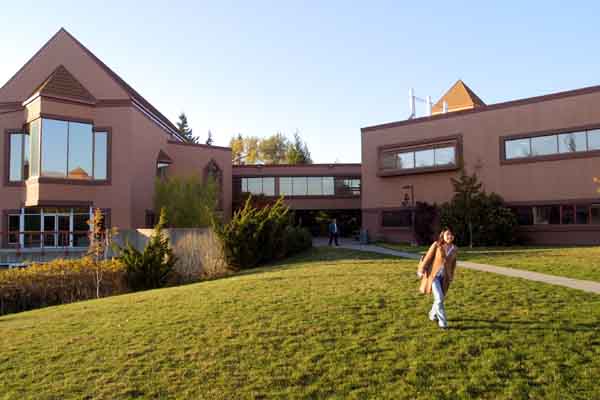by Alex Watkins (News Writer)
How does a country strike a balance between fighting terrorism and protecting the human rights of its citizens?
This is one of the many questions posed at the lecture held in the Centre for Indo-Canadian Studies on Wednesday, October 20. Entitled “Just Between Friends: Bilateral Cooperation, Bounded Sovereignty and the Human Rights Dilemma,” the event was hosted by the University of Western Washington’s Dr. Bidisha Biswas, a political science professor. It was part of UFV’s South Asian Lecture Series.
The lecture is divided into two parts, the first of which explores the ways in which Canadian-US relations have changed since 9/11, which is evidenced in changes to immigration policies and security measures. The second part examines the inevitable human-rights dilemmas that occur when dealing with the challenges of countering terrorism.
Biswas asserted that Canada and the US have historically had a strong trust-based relationship that was altered after the events of 9/11. Handling the issues of security has become a tense matter, as the US has anxiety about some Canadian policies; their perception of Canada as too liberal and immigrant-friendly, paired with worries about the difficulty of securing the large Canada-US border, has led the US to view Canada as the source of a potential threat.
The 9/11 commission report identified Canada as a country of concern, not as the perpetrator of a threat but as the potential source of it, due to its approach to immigration and to the known existence of active terrorist groups in the country.
As a result, the US has requested that Canada tighten its border policy. Canada is largely deferential to US demands, and although the many domestic changes unveiled around the time of the 9/11 attacks were claimed to be protecting Canadian interests – such as the Anti-Terror Act of 2001 and the Immigration and Refugee Protection Act of 2002 – it is clear that Canada still had (and continues to have) a serious interest in meeting US demands, both due to trade ties and due to the protection that the US offers via its strong military force.
Here Biswas noted that the relationship between Canada and the US has historically been one of “asymmetrical interdependency,” in which the power balance is unequal, though both countries benefit from the partnership.
Biswas stated that, although Canada was largely deferential during this time, there were some marked incidences of resistance to US hegemony.
One example given was Canada’s refusal to assist the US in invading Iraq. Another was the case of Maher Arar, a Canadian citizen who was held at the US border as a terrorist suspect and was deported to Syria where he was tortured; following this, Canada altered its process in order to make it more difficult for the US to obtain information on Canadian citizens, effectively slowing terrorist-related communication. These incidences have shown that, while Canadian sovereignty is still strongly bound to the US, it is not determined.
Although most of the anxiety immediately following 9/11 has died down, Biswas argues that there still continues to be a perceived threat of terrorism. Anti-terrorist measures often involve the problem of racial profiling, which stems from the fear that immigrants (particularly Muslims) pose a threat. One issue with racial profiling is that, in Canada, law enforcement on the basis of religion is criminal. Another major issue is that data reveals that this method isn’t really effective in catching criminals.
Biswas suggests that the behavior of individuals is the most important area to focus on, rather than faith or appearance. However, she notes that behavior may be unavoidably linked to faith, which becomes a problem; for example, if one notes that a mosque in the area has suddenly begun preaching very radically.
Here Biswas emphasizes the difficulty in striking a balance. She asks: “Is it worth it to alienate a population based on a possible threat?” As she notes, some protective steps taken by government may actually be dangerous to democratic unity. She asserts that the best way to find balance is to study the experiences of other countries with the same problem and to constantly re-examine related public policy.
Additionally, Biswas argues that it is up to citizens to constantly question their leaders on issues surrounding security, rather than simply accepting that the organizations and/or individuals being dealt with are really a risk.
UFV will continue to host a variety of speakers on topics related to South-Asian issues. The next lecture in the series is “Computer Analysis and Synthesis of the Punjabi Language,” and will feature Dr. Surinder Dhanjal of Thompson River University. It will be held on Tuesday, November 9 at 7pm in the Centre for Indo-Canadian studies at U-house.


